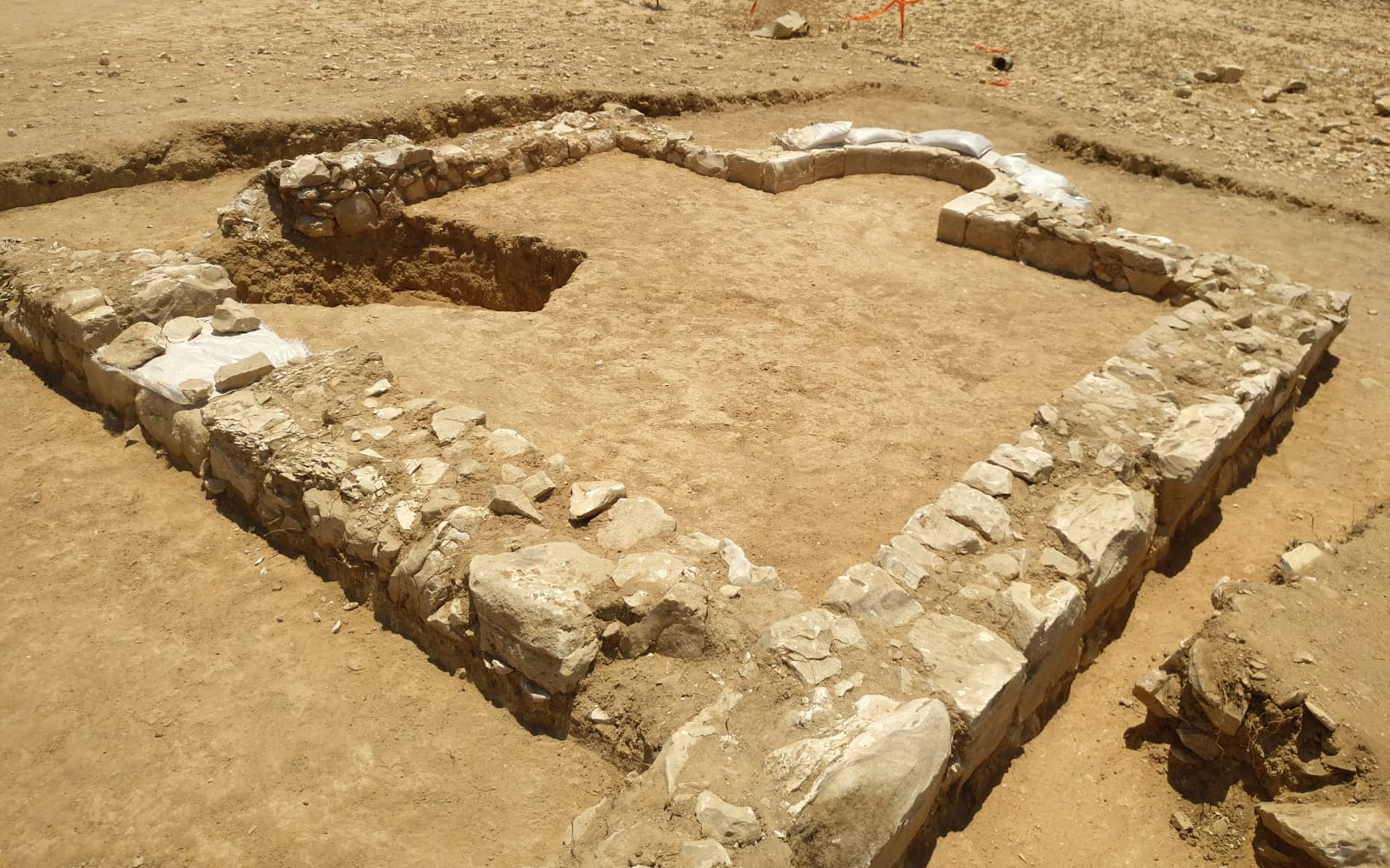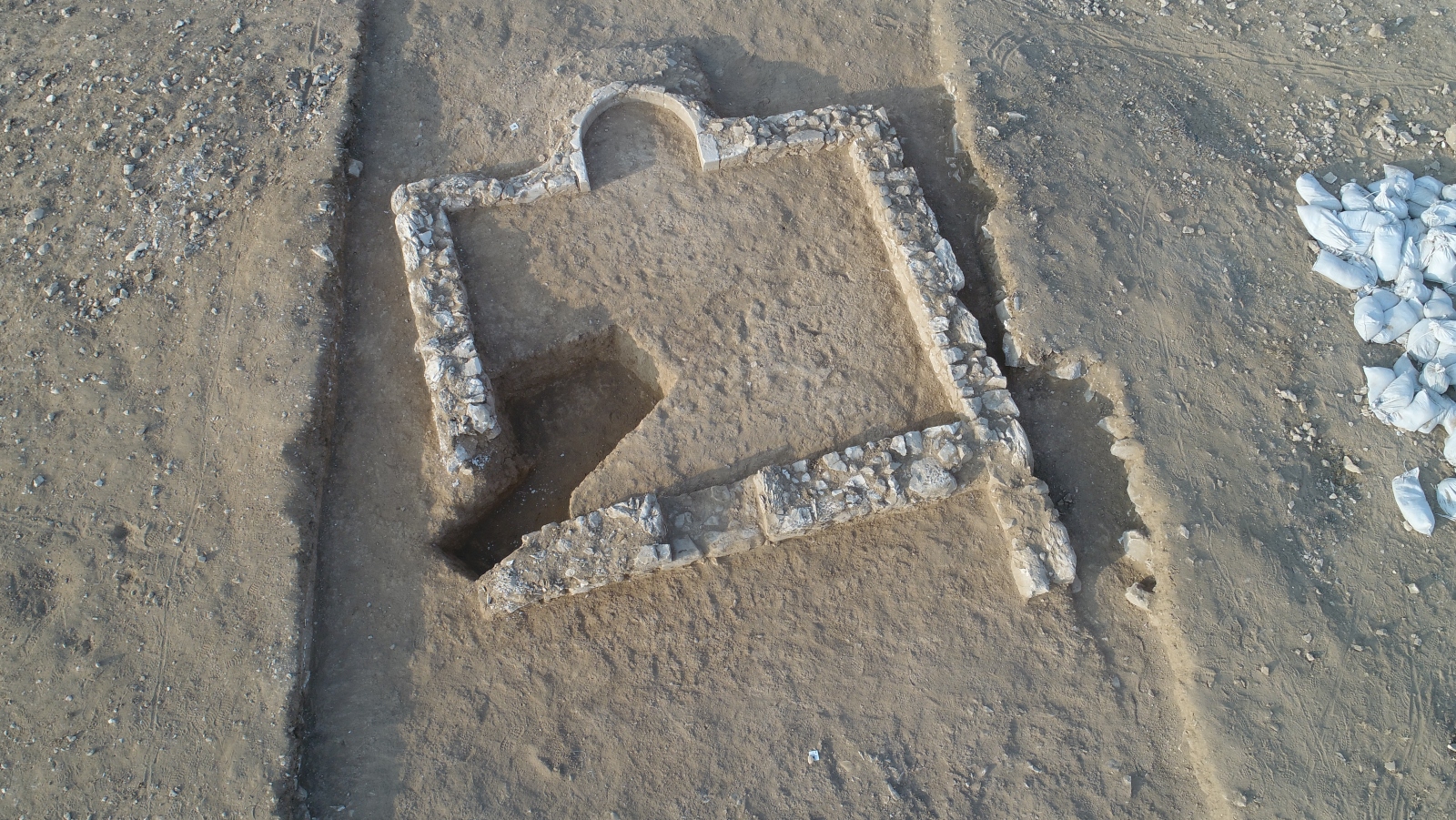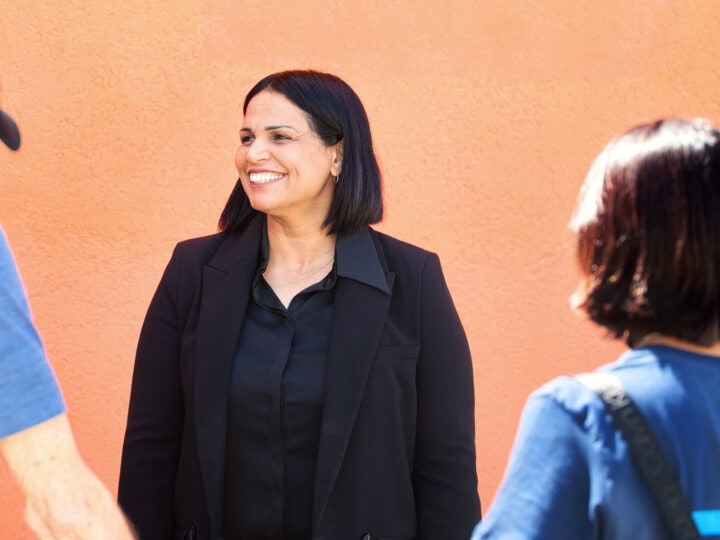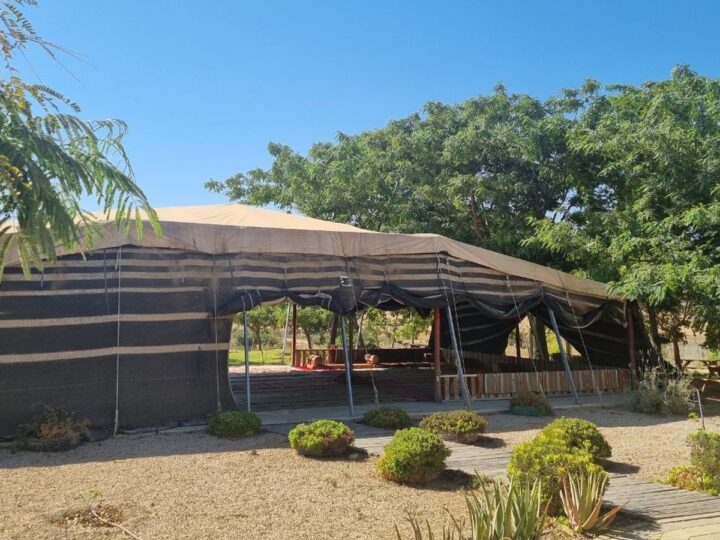The remains of a rare mosque were discovered by the Israel Antiquities Authority during preparations for building a new neighborhood in the Israeli Bedouin town of Rahat, near Beersheva.
According to Jon Seligman and Shahar Zur, directors of the excavations for the Israel Antiquities Authority, “A small rural mosque, dated to the seventh to eight centuries CE, is a rare finding anywhere in the world, especially in the area north of Beersheva, where no similar building has previously been discovered. From this period there are large known mosques in Jerusalem and in Mecca, but here we have evidence of an ancient house of prayer, which seems to have served the farmers who lived in the area.”
The open-air rectangular building had a mihrab (prayer niche) facing south, toward Mecca.
Excavators also found a farm from the end of the Byzantine period (sixth to seventh century CE), and a small settlement containing remains of buildings divided into living rooms, open courtyards, storage space and places used for preparing food in tabun ovens. The authorities are examining possible ways in which this special find can be integrated into the new neighborhood.

According to Prof. Gideon Avni, an Israel Antiquities Authority expert on this historical period, the mosque dates from the beginning of the arrival of Islam in Israel, after the Arab conquest of 636 CE. It was near a known agricultural settlement.
“The discovery of the village and the mosque in its vicinity are a significant contribution to the study of the history of the country during this turbulent period,” said Avni. “According to historical Islamic sources, the new Islamic regime distributed plots of land to its senior officials. The continuation of excavations on the site will perhaps provide answers to the questions regarding the foundation of the settlement and the nearby mosque, and its connection to the Arab conquerors of Israel.”
Bedouin residents of the area, as well as youth from the local villages and towns, got summer jobs helping in the excavation as part of the Antiquities Authority’s Legacy Project supported by the Authority for Development and Settlement of the Bedouins in the Negev and Emek Ayalon Infrastructure & Projects Management.
Fighting for Israel's truth
We cover what makes life in Israel so special — it's people. A non-profit organization, ISRAEL21c's team of journalists are committed to telling stories that humanize Israelis and show their positive impact on our world. You can bring these stories to life by making a donation of $6/month.








